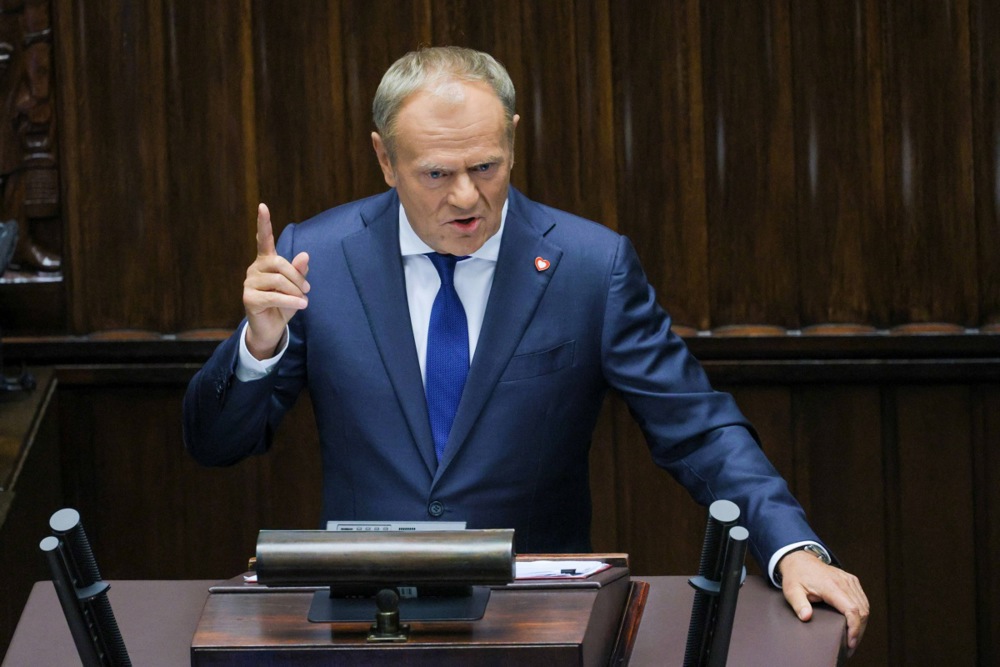Poland’s Supervisory Chamber of the Supreme Court has validated the result of Poland’s presidential election of June 1 which saw the opposition Conservative (PiS) defeat the Prime Minister Donald Tusk centre-left government’s candidate Rafał Trzaskowski.
The decision on July 1, taken despite objections raised by justice minister Adam Bodnar, was widely expected despite the allegations of the irregularities in the counting of votes. That was alongside challenges over the status of the chamber itself, which was created by the previous PiS government.
Under Polish law, the Supreme Court’s confirmation was final and could not be appealed domestically. Given the contested nature of the Supervisory Chamber of the Supreme Court, though, legal challenges may be filed at the European Court of Human Rights or the European Court of Justice.
Voters were able to file petitions to the Supreme Court challenging the election result within 14 days of the official announcement of results by the election regulator (PKW). The court would then be obliged to review every protest and issue a final resolution within 30 days of polling day.
More than 53,000 protests were filed, over 90 per cent of which were identical and inspired by a protest about the accuracy of the election count launched by Tusk’s family attorney and party MP Roman Giertych.
There were also claims of statistical anomalies in turnout figures and candidate shares, spikes in invalid ballots and accusations that an unlicensed digital “check-in” app blocked some late voters.
The PKW, in its official report on June 16, acknowledged “incidents that could have affected the result” but stated that only the Supreme Court could judge their significance.
In its decision, the Supervisory Chamber noted that, while it had confirmed 21 cases of irregularities during the election, “the identified violations did not affect the result”. That saw Nawrocki winning by almost 370,000 votes, whereas proven irregularities occurred in little more than a dozen of the 32,000 electoral districts.
The government has argued that the Supervisory Chamber should not have been tasked with validating the election result. That was because its existence and membership have been questioned by the European Court of Justice, the Tusk-led coalition and also a minority of justices who serve in the Polish Supreme Court.
Bodnar made a last-ditch appeal to the Supreme Court to transfer the decision on the validity of the elections to another, legal, chamber but his request was denied. In doing so one of the court’s judges pointed out that Bodnar had no problem with his own election to the Senate in 2023 being validated by the same court.
The justice minister also accused the Supervisory Chamber of dismissing almost 50,000 complaints about the elections without properly considering them and his deputy Jacek Bilewicz added that, as a result, “we still do not know what the election result is”.
Some figures associated with Tusk’s party have suggested that, regardless of what happened on July 1, next month’s swearing-in ceremony should not go forward due to question marks over vote-counting and the legality of the oversight chamber.
But the idea of attempting to stop the victor, the PiS-backed Karol Nawrocki, from becoming president on August 6 has been rejected by all the other coalition partners – the Left party, the centre-right Polish People’s Party (PSL) and the centrist Poland 2050.
The Speaker of Parliament and leader of the Poland 2050 party Szymon Hołownia has confirmed he will convene both houses of parliament on August 6 to allow Nawrocki to take his oath of office.
Challenging the election result seems to have damaged Tusk’s party in opinion polls. Support for the party has fallen by 7 per cent in two recent polls and it now trails PiS.
If parliamentary elections were held now, the PiS would, together with the Confederation party, hold a comfortable majority of seats in the legislature.





